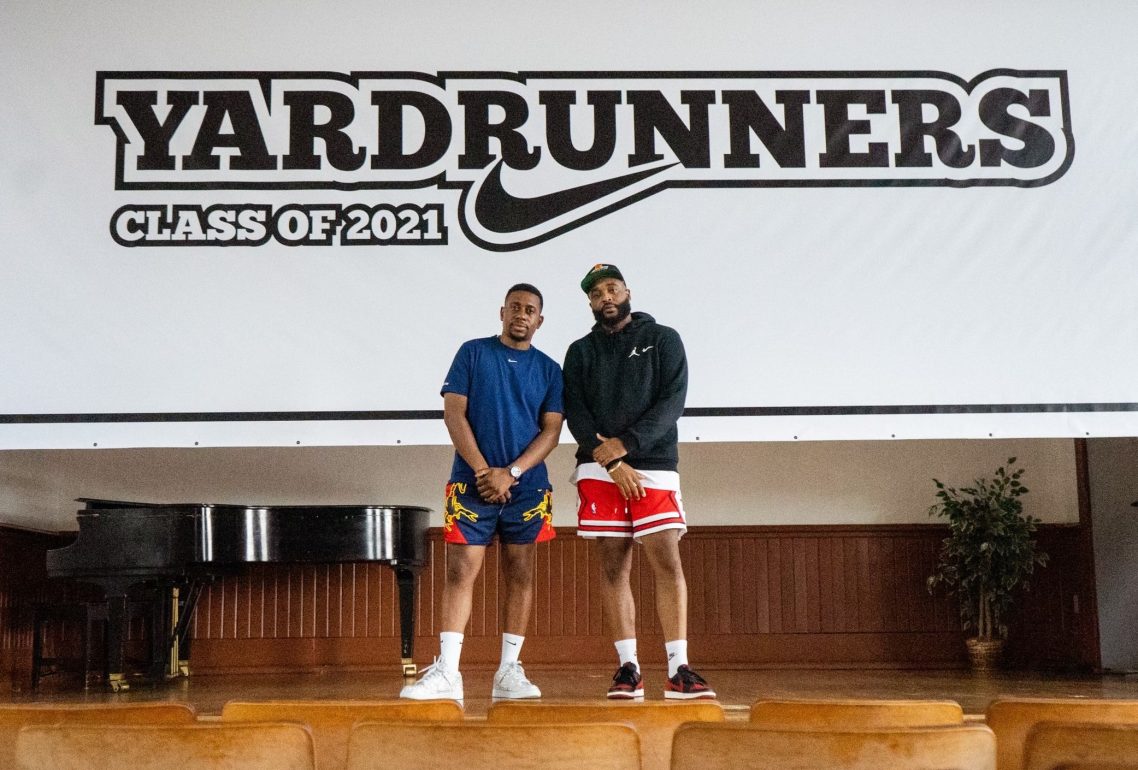The Air Jordan 1 Low in Summit White, Gym Red, and Midnight Navy was released last week, and from the second it was unveiled, there was no mistake that it was a Howard University colorway. This is the first Bison colorway release since Jordan Brand and the university inked a 20-year partnership in 2022. Sponsorship deals between the Jumpman and top universities are not new. Still, for most of the brandâ€
Howard University alumni Richard Palmer and Arinze Emeagwali met on campus and immediately bonded over their love for sneakers. “We used to spend hours on NikeTalk and even camped out overnight for Jordan drops,†said Palmer. The two not only bonded over their love for kicks but also shared an ambition to work at Nike in the future. After spending years building their careers at other companies, the two were reunited at Nike in 2016, and their pride in Howard had only grown stronger as alumni. “Throughout our careers, we constantly gave back to Howard and other HBCUs through student mentorship, events, and large-scale company donations,†said Emeagwali. Palmer spent his first three years in Beaverton working for the Jordan Brand marketing team, while Emeagwali worked in the same function at Nike NYC. In 2019, Palmer took a role with Nike, and the two knew it was time to officially take the Swoosh to “The Yard.â€
Before their vision came to life in 2020, Nike’s deals with HBCUs paled in comparison to those with other universities, and team gear was not available outside of campus bookstores. However, their idea of how Nike could show up authentically at HBCUs was about more than just access to merchandise. “The original concept centered around the Nike ‘You Canâ€
The duo had years of marketing experience but knew they would need support from their colleagues at Nike. “The HBCU community is extremely strong at Nike and includes leaders like Howard alumnus Adrienne Lofton, who was instrumental in making the campaign happen,†said Palmer. Despite an existing network of HBCU graduates, the Yardrunner campaign still had challenges. “Nike is a progressive company, but the HBCU space was truly uncharted territory,†said Palmer. “There was a level of education required, plus we had to dispel some preconceived notions while getting internal buy-in.†The team knew authenticity was a top priority when executing this idea, and fighting to preserve it was paramount. “The challenges provided some valuable lessons in understanding how to navigate the corporate structure without sacrificing your authenticity or wavering from your ultimate goal,†added Emeagwali.
After receiving buy-in internally, the Yardrunner team knew the most crucial approval would come from the HBCU community. There are currently 107 HBCUs and nearly 230,000 students. The alumni base is even more extensive and dates back to 1837 when Cheyney University of Pennsylvania was founded. “The HBCU community will hold you accountable, and theyâ€
Each year since its introduction, the Nike Yardrunners campaign has gotten bigger and continues to highlight HBCUs through student and alumni stories, events, scholarships, and product releases. In 2021, Nike hosted its first HBCU dance showcase with a campaign that featured Texas Southern alumnus Meg The Stallion. In 2022, Nike released a Yardrunners collection that featured apparel, accessories, and Nike Dunk Lows representing HBCUs. 2023â€
Itâ€
